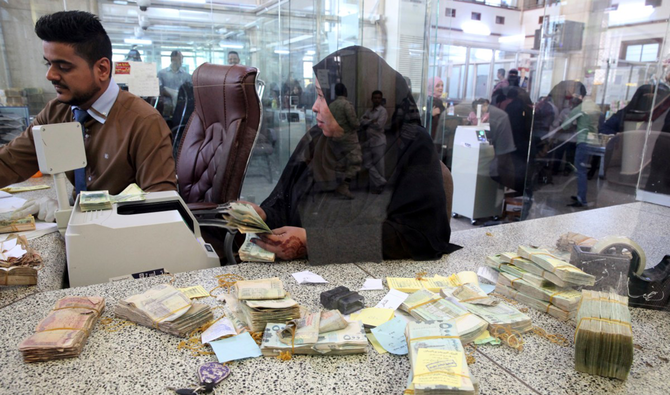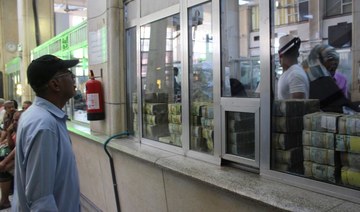AL-MUKALLA: Yemen’s central bank has closed 30 private exchange firms for violating currency speculation rules after the Yemeni riyal hit a record low against the US dollar this week.
In a letter sent on Tuesday to local exchange firms and government and private banks, the central bank asked local monetary firms to sever ties with the blacklisted firms and freeze their accounts. The letter accused the firms of failing to comply with central bank regulations and taking part in currency speculation that led to the decline of the riyal.
The banned firms were established over the last five years when Yemen’s banking system fell apart amid the country’s civil war.
In a bid to curb currency speculation and money laundering, the Aden-based central bank has banned an informal remittance system between local exchange firms known as Hawala, and replaced it with a formal electronic network under its supervision. It also closed many unauthorized exchange firms and provided locals goods and fuel traders with hard currency.
The measures had no effect on the market as the Yemeni riyal plunged to 880 against the dollar this week, reaching historical new lows and breaking a previous 855 record last month. The dollar was traded at 682 in January this year, falling from 215 in January 2015.
Local currency traders told Arab News that there is surging demand for the US dollar and Saudi riyal from local traders, which contributed to the riyal crash.
“When the dollar and the Saudi riyal have been scarce in the market recently, a local trader came to us and wanted to buy 1 million Saudi riyals at any cost,” an anonymous trader told Arab News, adding that many currency traders are cashing in on growing demand for the dollar to sell at inflated prices.
Subhi Baghafar, a spokesperson for the Moneychangers Association in Aden, said that the association stands by the central bank’s punitive measures against unauthorized exchange firms and those who take part in currency speculation, adding that the internationally recognized government should “bring the banking system under its control.”
Baghafar said: “We support any strict measures against violators of the central bank’s regulations and the system of the moneychanging profession, whether they are commercial banks, companies, money-changing institutions, individuals or businessmen.”
Economists blamed the Yemeni government for failing to curb the currency’s fall and the Iran-backed Houthis for banning the use of new banknotes printed by the central bank.
Mustafa Nasr, director of the Economic Media Center, said that the Yemeni government should “act quickly” to rein in the currency crash by restricting new banknotes, imposing tough punishments on currency speculators and creating a supply and demand balance for the dollar.
“The continuing fall of the riyal reflects the failure of not only the central bank, but the government, the presidency and all of the internationally recognized government’s institutions and risks causing destructive impacts on the currency and people’s life,” Nasr said.
The rapid devaluation increased the prices of some basic commodities by about 10 percent, local traders and small grocers said.
“This egg costs 100 riyals now, rising from 80 last week,” Hassan, who runs a small grocery in the city of Al-Mukalla, told Arab News.
The Sanaa Center for Strategic Studies demanded in a report on Nov. 27 that the international community pressure Yemen’s government and the Houthis to end fighting over control of the country’s banking system.
“The international community must elevate the importance of the economy in its Yemen policy immediately, starting with increasing political pressure on the Houthis and the government to halt the escalation and battle for control over Yemeni banks and money exchange outlets,” the report said.
“While the military conflict has claimed many lives and caused significant destruction to the country, it is the economic warfare that has a wider, and arguably more devastating, impact on the population and the country as a whole,” it added.
























